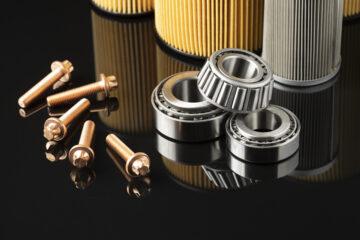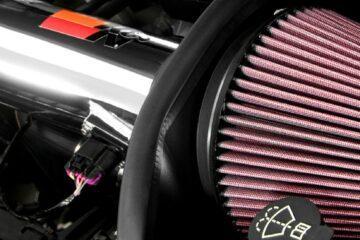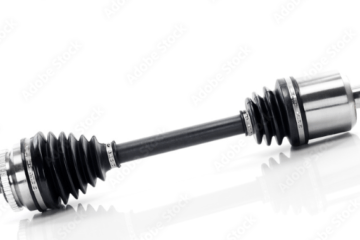Auto parts play a vital role in the performance and efficiency of your car. By choosing the right auto parts, you can improve your car’s fuel efficiency and save money on gas.
In this introduction, we will discuss some of the best auto parts for fuel efficiency, as well as tips for improving your car’s fuel efficiency overall.
The best auto parts for fuel efficiency
Some of the best auto parts for fuel efficiency include:
- High-quality tires: Low rolling resistance tires: These tires are designed to reduce friction with the road, leading to improved fuel efficiency. Look for tires that are labeled as “low rolling resistance” when it’s time to replace them.
- Air filter: High-flow air filters: Upgrading to a high-flow air filter can improve the engine’s airflow, allowing it to operate more efficiently and potentially boost fuel economy.
- Fuel injector cleaner: Fuel injectors can become clogged over time, which can reduce fuel efficiency. Using a fuel injector cleaner can help to clean out the injectors and improve fuel flow.
Cleaning or upgrading fuel injectors can improve fuel atomization and combustion efficiency. - Mass airflow sensor (MAF sensor): The MAF sensor measures the amount of air entering the engine. A dirty or faulty MAF sensor can cause the engine to run inefficiently. Be sure to have your MAF sensor cleaned or replaced regularly.
- Oxygen sensor: The oxygen sensor monitors the amount of oxygen in the exhaust gas. A faulty oxygen sensor can cause the engine to run lean, which can reduce fuel efficiency. Be sure to have your oxygen sensor replaced regularly. Replacing worn-out oxygen sensors can help maintain the right air-to-fuel ratio, ensuring optimal combustion and fuel efficiency.
- Transmission fluid: Old or dirty transmission fluid can cause the transmission to slip, which can reduce fuel efficiency. Be sure to have your transmission fluid changed according to the manufacturer’s recommendations.
Using a high-quality synthetic transmission fluid can reduce friction and improve transmission efficiency, which can translate to better fuel economy. Transmission filter and regular maintenance: Ensuring your transmission is well-maintained can prevent unnecessary friction and power loss. - Exhaust System: Installing a more efficient exhaust system can reduce back pressure and help the engine breathe better, potentially leading to better fuel economy.
- Spark Plugs: Iridium or platinum spark plugs: These types of spark plugs can provide a more consistent and efficient spark, leading to better combustion and fuel efficiency.
- Engine Control Module (ECM) Tuning: Custom ECM tuning can optimize your engine’s performance and fuel efficiency by adjusting air-fuel ratios, ignition timing, and other parameters to match your driving conditions and habits.
- Aerodynamic Enhancements: Adding aerodynamic enhancements such as a front air dam or a rear spoiler can reduce wind resistance, improving highway fuel efficiency.
Tips for improving your car’s fuel efficiency
In addition to choosing the right auto parts, there are a number of other things you can do to improve your car’s fuel efficiency:
- Maintain your car regularly: Make sure to get your oil changed, tire pressure checked, and other maintenance tasks performed according to the manufacturer’s recommendations.
- Drive efficiently: Avoid hard acceleration and braking, and coast whenever possible.
- Use cruise control on the highway: Cruise control can help you to maintain a steady speed, which can improve fuel efficiency.
- Remove unnecessary weight from your car: Every extra pound that your car has to carry reduces fuel efficiency. Removing unnecessary weight from your vehicle, such as roof racks or heavy cargo, can help reduce the workload on your engine and improve fuel efficiency.
- Regular Maintenance:
- Properly maintaining your vehicle by regularly changing the oil, replacing worn-out components (e.g., spark plugs, filters), and keeping the engine tuned up is essential for optimal fuel efficiency.
- It’s important to note that while these auto parts and components can contribute to improved fuel efficiency, the impact may vary depending on your vehicle’s make and model. Additionally, driving habits and conditions also play a significant role in fuel efficiency. To maximize the benefits, consider a combination of these strategies and consult with a mechanic or automotive expert for specific recommendations tailored to your vehicle.
- Properly maintaining your vehicle by regularly changing the oil, replacing worn-out components (e.g., spark plugs, filters), and keeping the engine tuned up is essential for optimal fuel efficiency.
By following these tips, you can improve your car’s fuel efficiency and save money on gas.
Conclusion
Auto parts play a vital role in the performance and efficiency of your car. By choosing the right auto parts and following the tips above, you can improve your car’s fuel efficiency and save money on gas.



